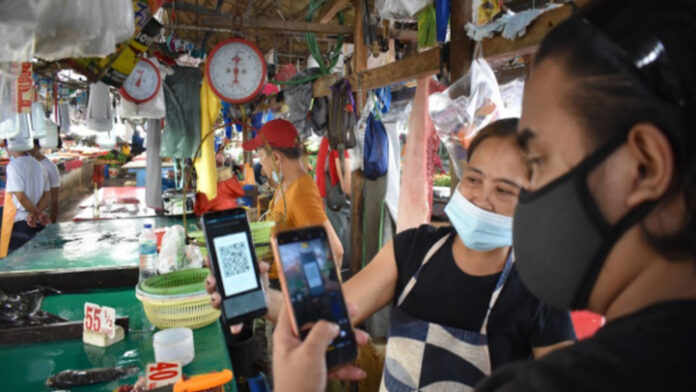A House of Representatives panel has approved a bill seeking to promote the adoption of digital payments for financial transactions of the government and all merchants.
During a hearing on Tuesday, the House Committee on Banks and Financial Intermediaries, chaired by Manila Rep. Irwin Tieng, approved the consolidated version of House Bills 275, 358, 2946, 3737, 4344, and 5073, or the proposed “Use of Digital Payments Act.”
Tieng said the proposal is advantageous for both the merchant and the customer.
He explained that with digital payments, merchants would no longer need to hire a cashier to handle physical currency while the buyer would no longer need to prepare coins and bills for payment.
Tieng added that the sales of the merchant would be more secure because electronic payments go directly to the store’s account, which cannot be easily pilfered or stolen by employees or shoplifters.
He also cited the lesser face-to-face transactions between government agents and customers as another advantage of a digital payment regime, minimizing both disease transmission and possible opportunities for corruption.
Davao City Rep. Paolo Duterte, author of House Bill 3737, said the bill seeks to promote the universal use of safe and efficient digital payments in financial transactions of the government and the general public.
“By allowing the digital platform of payment as a pre-requisite for the approval or renewal of their business permits, merchants are now mandated to further digital transactions in their every operation. Meanwhile, the government is also duty-bound to utilize safe and efficient electronic or digital means of receiving payment for taxes, fees, tolls, imposts, and other revenues and for the payment of goods, services, and other disbursements,” Duterte said.
He noted that aside from the speedy and efficient transactions, the proposed measure would also showcase the transparency of digital transactions due to an increase in effective monitoring, tracking, and securing that the innovation would ensue.
HBs 2224 and 2748, or the proposed “Use of Electronic Money Act of 2022,” also hurdled the committee level.
National Economic and Development Authority Assistant Secretary Sarah Daway-Ducanes expressed her agency’s support for the bills, saying these are aligned with the strategy of accelerating digital transformation in the government in the practice of good governance and improved bureaucratic efficiency espoused in the Philippine Development Plan 2023-2028.
The measures are also aligned with the strategies of promoting a safe and efficient national payments system, part of the consolidated draft of the e-Governance Bill, which is a priority measure of President Ferdinand R. Marcos Jr. included in the common legislative agenda of the Legislative Executive Development Advisory Council. (PNA)
Photo credit: Philippine News Agency


